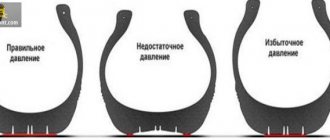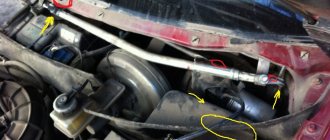The oil used in internal combustion engines performs several tasks. It cools engine parts, prevents corrosion, reduces friction of moving parts, thereby slowing down wear.
Since there are many types and varieties of engines, there are no less motor oils. After all, the operation of different propulsion systems is designed for certain operating conditions. You can determine which oil to use when operating a car, for example, Shell or Mobile, if you know the principles of oil classification.
About the manufacturers Mobile and Shell
A significant number of car owners have far from a complete understanding of engine operation at different temperatures, nor do they show interest in the chemical composition of oils. They are based only on reviews of other drivers and recommendations of specialists.
Both concerns have long gained popularity on the world market. The first, North American, has existed for more than 120 years. Over this period of time, it has strengthened significantly and absorbed several less significant competitors.
In 1999, it merged with the big English company. In terms of sales, the corporation has been in second place in the United States for a long time, confidently maintaining its place among the top five world leaders.
Shell, which is the largest manufacturer of motor oils, is a joint product of two countries - the Netherlands and Great Britain. It leads the world market in terms of sales volumes. Created at the very beginning of the 20th century.
The products made by Mobil and Shell Helix are of high quality. At the same time, the first manufacturer has compounds that reduce consumption.
The second produces motor oils that allow you to start engines without problems in any heat. At the same time, they reliably protect the motors. In addition, this company’s line includes GTL oils.
General information about Mobile and Shell Helix motor oils
Both manufacturers have mineral water in their range. The process of its manufacture is the primary (selective) purification of the composition from the paraffins present in it.
When mineral oils are hydrotreated, their characteristics improve. They lubricate parts better. There are very few substances that are pollutants in them.
Lubricants with special viscosity are also produced, which is ensured by the hydrocracking process. Such compositions are present in the assortment of both Shell and Mobile. They are divided into mineral, synthetic, semi-synthetic.
All these products are stable against oxidation, have good viscosity, and do not contain harmful impurities. GTL oils are of the highest quality. Mobile doesn’t have any lineups of this level yet.
Both Mobil and Shell Helix are manufactured for both diesel and gasoline engines. In addition, there are universal compositions that are suitable for working with both internal combustion engines.
When purchasing motor oil, you should always monitor the kinetic viscosity indicator. If the viscosity is high, then it can be poured into the engine even if the summer heat reaches tropical levels.
Motor oils intended for internal combustion engines always contain a variety of additives that improve its properties. In recent years, synthetic oils have become more popular. They contain chemical compounds that provide higher performance.
Which motor oils are more popular - Shell or Mobil?
In July 2021, on PartReview, Shell motor oils were generally more popular than Mobil.
In terms of votes, Shell motor oils outperformed Mobil:
- For Shell, the ratio of positive votes (1027) to negative votes (355) was 672 votes.
- For Mobil, the ratio of positive votes (848) to negative votes (237) was 611 votes.
In terms of the number of reviews, Shell motor oils surpassed Mobil:
- There are 431 reviews written on Shell motor oils: 296 positive, 60 neutral, 75 negative.
- There are 337 reviews written for Mobil motor oils: 244 positive, 50 neutral, 43 negative.
Engine oil requirements
When choosing an oil, you should rely on the following basic parameters:
Viscosity is a state of aggregation that completely depends on temperature. This indicator is considered important, since it is responsible for the friction force with which the engine cylinders operate.
Base number - indicates the volume of ions that, during operation, eliminate oxides, cope with wear and show cleaning characteristics. The higher the indicator, the longer the oil will be able to cope with its task.
All these nuances indicate the quality of the oil and its focus: improved engine performance or additional protection. Both Mobil and Shell have lubricants that are optimal in all respects.
Which motor oils are better - Mobil or Shell?
In the July 2021 PartReview, Mobil motor oils were overall better than Shell.
- Shell received a PR score of 74 out of 100, and Mobil managed to score 78 points.
- Shell took 8th place in the ranking of the best manufacturers, and Mobil took 5th place.
- Mobil's average review score (4) is higher than Shell's (3.9).
- Mobil motor oils have better property ratings than Shell:
- Oil consumption - owners believe that Mobil has this property better than Shell.
- Engine performance - car enthusiasts claim that Mobil is superior to Shell in this feature.
- Temperature - from the reviews it is clear that this property is preferable for Mobil than for Shell.
Review and properties of additives in Shell Helix and Mobil oils
When analyzing the chemical composition, the alkaline indicator is what you need to pay attention to first, since it determines the variety of additives. They ensure the presence of ions:
- zinc,
- boron,
- calcium,
- phosphorus,
- magnesium
Mobile always contains more calcium - 20 mg/kg (Castrol also claims the presence of the same level of calcium ions in its products).
Shell products contain less calcium, no more than 13.55 mg/kg.
The remaining elements and compounds are present in approximately equal proportions. However, Mobile has a little more of them.
At the same time, Shell oils contain a larger volume of barium – 15 mg/kg. In Mobile this figure is 9.5.
But in general, the amount of basic additives in Mobil formulations is higher than in Shell. In particular, they contain molybdenum (Mo), which improves the lubricating effect. This metal is designed to protect engine parts and components during friction.
When the motor operates, microcracks form in the parts. They are filled with molybdenum particles. Mo is highly durable, thanks to it the life of the motor is extended. A kilogram of Mobil oil contains 150 milligrams of molybdenum.
Analysis of the chemical properties of Shell and Mobile oils
Analysis of chemical composition and base number The chemical composition of automobile oil is determined by its additive elements, the content of which is measured in milligrams per kilometer. These elements include calcium, phosphorus, zinc, boron, and magnesium ions. In terms of the content of calcium ions, Mobile or Castrol oils have an undeniable advantage.
It contains more than 2000 mg/kg, compared to 1354 mg/kg Shell oil. The amount of magnesium is approximately the same. The content of phosphorus, zinc, boron is also higher in Mobil products, but it cannot be said that the difference between these indicators is great - on average, the deviation reaches 10%. However, Shell oil contains 2 times more barium than its competitor - 14 mg/kg. It is noticeable with the naked eye that Mobile oil is significantly ahead of Shell in terms of the content of various ions. This quantitative advantage results in a higher TBN: on average, Mobile oils show values in the region of 9.5 mg KOH/g, while Shell oils have a value of about 5.40 mg KOH/g. An interesting feature of Mobile oils, which significantly improves the functionality of the product, is the molybdenum content. This metal protects the engine from wear and reduces the effect of friction. Its mechanism of action is simple - it fills microcracks, increasing the smoothness of the surface. The average molybdenum content in Mobil oils is 150 mg/kg.
Despite Shell's apparent lag in terms of quality composition, empirical experience shows that the compared oils show equally good performance in terms of engine wear protection. The only significant difference between them is the difference in protection between aluminum and steel parts, which has been studied due to trace concentrations of iron.
Mobile oil shows the best results when working with an aluminum engine, and Shell oil - with a steel one. Also, in practical use, these oils show almost the same ability to protect against acids and various oxides. Despite the fact that Shell oil has an alkaline number almost twice as low as Mobile, it maintains the permissible acidity level no worse. Comparison of physical properties It has already been said that viscosity is one of the significant parameters of automobile oil.
Waste expense
When the engine is running, a process called oil burnout occurs. This parameter indicates the volume of motor oil burned in the internal combustion engine. It can also be called an indicator of efficiency.
There are maximum permissible consumption indicators for waste. In such cases, the less motor oil is consumed, the more economical it is considered.
All Mobil products are superior to Shell Helix in this regard. The difference in waste is close to three percent. But such an indicator is not a significant value, based on which a choice can be made.
Shell shows increased consumption. Without topping up, it will operate for 4,500 km, then the oil level will drop, and by 5,000 km it will drop below the permissible values.
Mobile is a more economical option, but the difference between them is not so noticeable - about 3%. This is indicated by the following data:
- On average, Mobile oil consumes 11.32 mg per 100 kilometers.
- Shell consumption is 11.39 per 100.
The physical characteristics and chemical composition of oils are responsible for the proper functioning of the engine.
The main differences between oils
To understand which oil is better - Mobile or Castrol, you should check it against many factors. Regarding different criteria, the leaders are completely different lubricants. When considering such a factor as the most economical fuel consumption, Shell's product is in the lead. According to studies, people who prefer a product of this brand can save about 8% on the fuel they use.
Often, comparative analysis affects the stability of the oil film; motorists are often interested in comparing lubricants at low temperatures. Here, Mobil's product is considered an unprecedented leader. This lubricant increases the service life of the engine, as it has a beneficial effect on reducing wear on system elements. True, this negatively affects the power of the power unit due to the increased coefficient of friction that appears due to the formed film. In Shell and Castrol lubricants, these qualities are somewhat less pronounced.
Russian specialists regularly check motor lubricants for many indicators. For example, with respect to kinematic and dynamic viscosity, all oils have excellent performance. As for the presence of additives, lubricants from Mobil, Shell, and Castrol win (at the same level, oils from Zik and Total). In terms of density, all oils correspond to the declared indicators. If we talk exclusively about anti-wear properties, we should give preference to Mobile and Shell lubricants; Castrol is a little weaker in this regard.
Taking into account the waste consumption and all the above criteria, Russian experts note that all the above-mentioned companies supply the market with oil on which a motorist can drive about 300 thousand km without any problems. Test results showed that Shell, Castrol and Mobile lubricants are suitable for use under normal operating conditions. Only under heavy loads on the machine’s power unit or high temperatures should you pay attention to the properties of a particular substance.
Operation at low temperatures
The lubricants were also tested in cold conditions. At the same time, temperatures were brought to minus 30 degrees. Studies have shown that Shell oils do not liquefy at 100°C.
In this indicator, it surpasses its competitor, as well as semi-synthetic samples from G-Energy and Motul.
The properties of the compositions from both brands remain at the original level during the cold season. Even at 30 degrees below zero, Shell Helix and Mobil maintain their viscosity characteristics, providing a start within three seconds.
Criteria for choosing engine oil
If a motorist does not know what to rely on when choosing a lubricant, he should, first of all, turn his attention to a product from a foreign manufacturer. As a rule, all motor fluids can be classified. The substances differ from each other in composition; you can buy mineral lubricants in stores, which are considered basic (they are created by selective purification by removing paraffins using a solvent); minerals that have been subjected to hydroprocessing; as well as lubricants that have the highest degree of viscosity.
Motor fluids that have the highest level of oxidative stability, as a rule, have excellent viscosity and do not contain paraffins. This class includes exclusively basic synthetic fluids without harmful impurities of sulfur and metals.
Manufacturers also create synthetic lubricants that are based on plant extracts. Such substances have a high level of resistance to the outer oil film. Their main advantage is considered to be the ability to flush the power unit, showing good thermal and antioxidant functions. It is believed that the best oil that exists today is a lubricant created using GTL technology. This substance is produced exclusively by Shell, where this lubricant is called Pennzoil.
What is better, Shell Helix or Mobile?
The large presence of additives in motor oil is only an indirect factor influencing the functioning of the engine. During the tests, Shell oil performance was not inferior to Mobile.
Differences are present only when we are talking about “soft” parts, that is, made of metals such as copper and aluminum. But in steel engines Shell shows advantages.
Both options have their advantages, but it is necessary to determine the optimal area for their work. In a situation where, due to the operating conditions, it is not possible to fill the vehicle with the proper fuel, a large package of additives must be added to the oil composition to increase the alkaline number - the Mobile brand fits this criterion.
It is also important that the oil and engine are compatible. As noted, Shell will suit steel equipment, and Mobil will suit aluminum equipment.
Climatic indicators, fuel quality, as well as vehicle operating conditions - all this affects the performance of the oil. Therefore, the answer to which choice to make will be completely different in different conditions.











